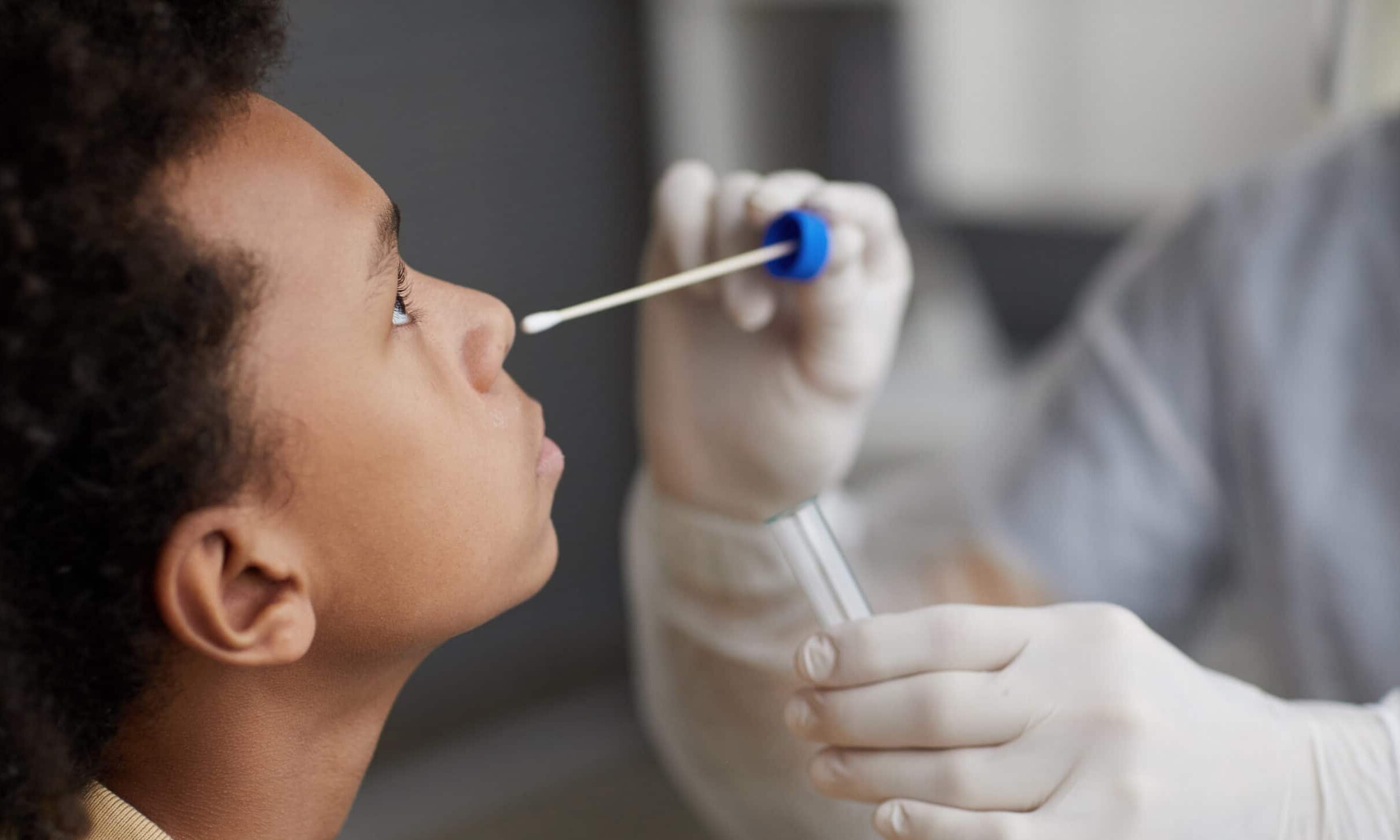Reverse Transcriptase-Polymerase Chain Reaction (RT-PCR) is a type of Nucleic Acid Amplification Test (NAAT). This method detects if an individual has COVID-19 before they become infectious, thus, allowing for earlier isolation to prevent the spread of the virus. RT-PCR/NAAT has the highest sensitivity compared to other mRNA quantifying methods, making it the gold standard for COVID-19 testing (see our post on Benchmarking COVID-19 tests).
What is the science behind the RT-PCR test?

When a sample is collected through a nasal or nasopharyngeal swab, it is sent to a lab where the nucleic acids are first extracted from it. Nucleic acids are the individual’s mix of genetic material, and, in the case of someone with COVID-19, this sample will also contain the virus mRNA. Since the genetic material from the virus is an mRNA molecule, and cannot be multiplied. It must be transformed into DNA with the use of the Reverse Transcriptase catalyst enzyme through a process called reverse transcription. Next, a Polymerase Chain Reaction (PCR) identifies

small segments of genetic materials known to be from the virus and multiplies it, making detection easier. Amplification of the virus’ DNA material through a PCR is achieved using chemical reagents. These chemical reagents include fluorescent dyes that tag viral DNA. Upon examination, the fluorescence of the sample with a set threshold is used to classify a sample as positive, negative, invalid or indeterminate. Positive and negative control samples are also tested alongside the actual specimen to verify the results of the test.

RT-PCR/NAAT Equipment
COVID-19 RT-PCR equipment detects the presence of one to three genes of the virus. Detecting more than one gene means that the probability of detecting a COVID variant is higher. When selecting a testing provider, it is important to also understand the equipment used in the lab.
At FastTest, our equipment tests for the presence of 3 different genes of the virus. This helps increase the sensitivity of the process, by allowing us to detect more variants of the virus if present in the individual’s system. The selection of our systems and machinery was an expensive investment. We thought it necessary to bring the highest quality results to our clients. We use the TaqPath COVID-19 Combo Kit, which is on the list of authorized devices approved for use by Health Canada. Samples collected with the TaqPath COVID-19 Combo Kit are run on the QuantStudio 12K Flex Real-Time PCR System. The final examination is done using the Design & Analysis Software.
In conclusion, RT-PCR/NAAT tests require high-tech equipment and highly trained personnel to be performed well. Subsequently, the tests are more generally more expensive than antigen tests. Our mission at FastTest is to make high quality COVID-19 testing accessible to everyone in British Columbia. We are always looking to improve our product and service offering at competitive prices.

